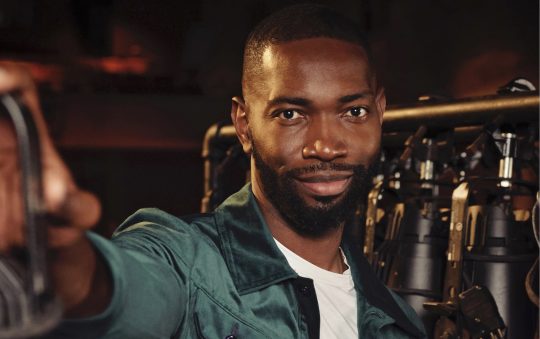
Deborah Riley Draper is an award-winning filmmaker and storyteller notable for advancing the untold truths of Black people and their culture.
Known for documentaries like “Olympic Pride, American Prejudice,” and “The Legacy of Black Wall Street,” Draper brings vigor, compassion, and brilliance to the screen.
Draper’s latest film, “Ratified,” is a documentary that chronicles the century-long struggle for constitutional gender equality focusing on Virginia’s role in ratifying the Equal Rights Amendment (ERA) as the 38th and final state.

Recently, Draper premiered “Ratified” at the prestigious BronzeLens Film Festival in Atlanta, Georgia.
“My most recent project, ‘Ratified,’ is about the 100-year journey of women to get the Equal Rights Amendment enshrined in the Constitution so that it can guarantee gender equality for all people, not just men,” said Draper.
Related Stories
TEC Leimert’s Annual Black to the Future Tech & Entertainment Conference
Black Community Unites to Re-Elect L.A. Mayor Karen Bass
“To tell our stories and center our stories is really important,” Draper continued. “I think sometimes Black history is not top of mind with so much going on currently, but we often forget that our present circumstances are deeply connected to what has happened and transpired in the past.”

Draper emphasized that reflecting on past stories is central because they form the basis for shaping the future.
When it comes to sharing history through her art, Draper said that the most important aspect for her is shaping and molding stories, especially as a writer, director, and filmmaker.
“Storytelling is inherent… because the more opportunities we have to tell stories about characters, voices, people, and places that we don’t often see, the more it helps broaden people’s perspectives,” Draper said.
“It helps reduce stereotypes, reduces fear and disconnect, unifies people, and helps them understand that we’re all human,” Draper added. “We all face similar challenges and obstacles.”
Draper also believes it is crucial for Black documentarians to tell Black stories to preserve Black history.
“We approach Black history as we approach ourselves,” Draper explained. “We do that naturally, with a lens of authenticity, but also with nuances from lived experiences that might help us understand things a little better or dig a little deeper.”
By reflecting on the past, Draper believes individuals can develop a stronger sense of identity and resilience, which fuels inspiration for future generations to keep striving for change and progress.
“I encourage everyone to watch films made by people of color,” said Draper.
“Just watch them for a number of reasons, and here’s why,” Draper continued. “One, we are always trying to establish that there is interest and enthusiasm for the stories that we tell.
Filmmakers of color are deeply committed to sharing perspectives that are often missing from mainstream narratives, Draper said this offers others a chance to explore cultural contexts and challenges that might otherwise go unseen.
“Two,” said Draper, “you have to know about more things in this world than just what’s right in front of your nose.” She maintained that watching these films not only provides a richer understanding of diverse communities but also spotlights the vibrant creativity and innovation within them.
Draper finished her thought, “And three, creatives of color make such great work.”
Draper said it is essential for everyone to watch films by creatives of color because these stories are infused with a distinct passion and authenticity rooted in lived experiences.
Draper insists that supporting these voices elevates underrepresented stories while enhancing the entire film industry by showcasing the full spectrum of human experiences and artistic expression.
Speaking on what she hopes the world will gain from watching Black stories, Draper said, “They’re human stories. They’re universal stories. They’re global stories. They’re stories about all of us. Stories about us are stories about them.”
For more information on Deborah Riley Draper, visit https://www.deborahrileydraper.com, and for more information on Draper’s work visit https://www.coffeebluffpictures.com.
Keith L. Underwood is the creator and owner of the entertainment news and interviews platform “Black in the Green Room,” which currently broadcasts on KBLA Talk 1580 radio, and it also podcasts across multiple platforms, including YouTube @blackinthegreenroom.







